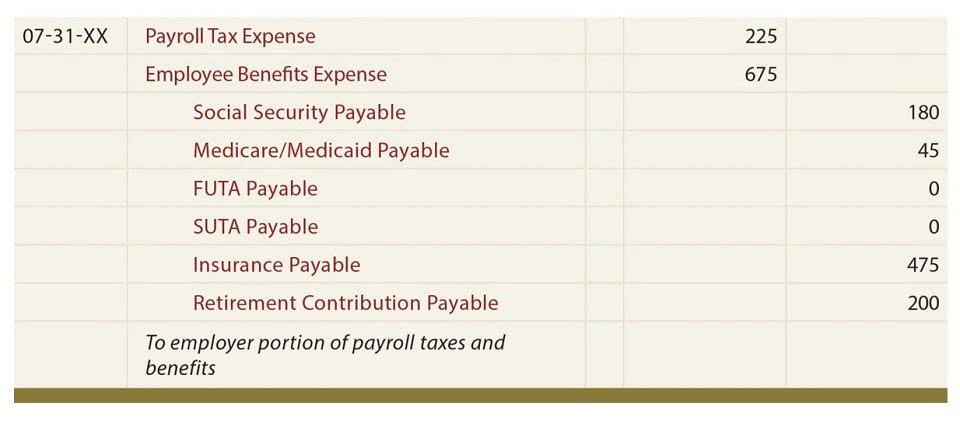
While not specific to New York, this credit can reduce overall tax liability. Another potential benefit is the Household Credit, available to lower-income New York residents. Unlike the EITC, this credit is not limited to earned income and can provide a modest tax reduction for those within certain income brackets. Errors in reporting unemployment income can lead to audits, penalties, or delays in refunds.
- Exemptions exist for certain transfers, such as those between spouses or to government entities.
- Glossary of Common Business Tax Terms Explained Navigating the world of business taxes can feel…
- It’s also crucial to be aware of tax filing deadlines to avoid penalties and to make the most of potential deductions and credits.
- Nonresidents may also need to file if they earn income from New York sources.
- The tax is applied to wages, salaries, and other compensation within certain thresholds, which are adjusted periodically.
- However, there are some key exclusions and deductions available that may reduce the amount of tax you owe.
Return filing requirements

If you moved into or out of New York State during the tax year, you are considered a part-year resident. As a part-year resident, you are taxed on all income received while a resident and on New York-sourced income earned while a nonresident. Local assessors determine the market value of your property, which serves as the basis for your property tax bill. The assessment process considers factors such as location, property size, improvements, and comparable sales in the area.
Is Unemployment Taxable in NY? What You Need to Know

Brief visits, such as overnight stays, count toward the 183-day threshold, and partial days spent in New York—whether for work, travel, or personal reasons—can be included. Taxpayers must keep detailed records, such as travel logs and receipts, to verify their time in and out of the state. New York source income includes wages, business earnings, real estate transactions, and certain investment gains. Wages from work performed in New York are taxable, even if the employer is based elsewhere.
You’re our first priority.Every time.
Comprehensive Guide to Federal Tax Forms Federal tax forms are official documents provided by the… Navigating the federal tax season can feel like a daunting journey, but with the right… An Individual’s Guide to Federal Tax Laws and Regulations Navigating the complexities of federal tax… Navigating the complexities of tax obligations can be daunting, especially when unexpected liabilities arise. If you live in a state with a reciprocal agreement and work in New York, you can complete the appropriate form to claim exemption from New York withholding, thereby avoiding double taxation.
New York State Payroll Deductions in 2025
New York’s taxation of remote work follows the “convenience of the employer” rule, which can create unexpected tax liabilities for individuals working from home in another state. If an employee’s assigned office is in New York but they work remotely for personal convenience rather than out of necessity, their wages remain subject to New York income tax. This applies even if they never physically enter the state during the tax year. Only if the employer has an official out-of-state office where the employee is required to work can the income be sourced elsewhere. While the IRS has occasionally provided temporary exemptions—such as the one-time exclusion of up to $10,200 per recipient in 2020—New York did not adopt this policy. Even when federal law exempts a portion of benefits, New York still taxes the full amount.
Retirees may also benefit from federal and state policies, such as the Veterans Benefits and Transition Act of 2018, which underscores efforts to support veterans’ financial stability. Certain pensions from government-sponsored retirement plans are exempt from New York State income taxes. These include federal civil service pensions, military retirement benefits, and state retirement system pensions. Deductions and credits https://eaglekhabar.com/2025/01/21/9618 can significantly reduce your taxable income and the amount of tax you owe.
- Comprehensive Guide to State Tax Credits and Deductions Understanding state tax credits and deductions can…
- Save time with automated accounting—ideal for individuals and small businesses.
- Refundable credits like the Earned Income Credit and the Empire State Child Credit can result in a refund.
- Errors in reporting unemployment income can lead to audits, penalties, or delays in refunds.
- In addition to the pension exclusion, New York State provides other deductions that can benefit retirees.

Understanding the latest EITC rates and thresholds is crucial for taxpayers who wish to maximize their potential credit and accurately plan their finances. The EITC can have a significant impact what income is taxable in new york state on a family’s annual budget, offering relief and financial stability to millions of Americans each year including those in New York. Use tax applies when taxable goods or services are purchased from out-of-state vendors without being charged New York sales tax. Consumers and businesses must self-report and pay use tax, a requirement actively enforced through audits. New York’s overall average effective rate is 1.64%, which implies $1,640 in annual property taxes for every $100,000 in home value.
Comprehensive Guide to Residency Declaration Forms for Taxes
If this deadline falls on a Saturday, Sunday, or legal holiday, the due date is extended to the subsequent business day, as it was this year – April 18, 2023. New York enforces strict tax compliance, imposing penalties for late filing, underpayment, and fraud. Late tax returns incur a 5% penalty per month, up to 25%, with additional interest. Fraudulent filings may result in penalties as Oil And Gas Accounting high as 50% of the underpaid tax plus interest.
